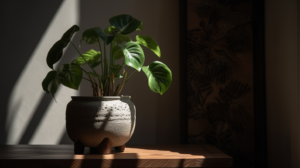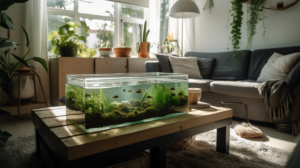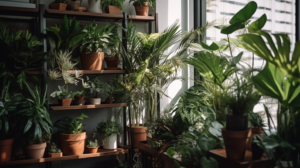Creating a Peaceful Zen Indoor Garden
Tips and Techniques for Tranquil Spaces
Introduction to Zen Indoor Gardens
Zen gardens are traditional Japanese gardens that promote mindfulness, relaxation, and reflection through simple, elegant designs. These minimalist gardens often feature natural elements such as rocks, sand, and plants, arranged in a way that encourages contemplation and tranquility. With a few tips and techniques, you can create your own peaceful Zen indoor garden in the comfort of your home.
Benefits of a Zen Indoor Garden
A Zen indoor garden can have various benefits, including:
- Stress reduction: The calming nature of Zen gardens can help you unwind and relax, reducing stress and promoting mental clarity.
- Mindfulness: By engaging with your Zen garden, you can practice mindfulness and focus on the present moment, improving your overall well-being.
- Aesthetics: Zen gardens are visually appealing and can enhance your interior design by adding a touch of serenity and elegance to your space.
- Air purification: Incorporating plants into your Zen garden can improve indoor air quality by filtering toxins and producing oxygen.
Starting Your Zen Indoor Garden
Creating a Zen indoor garden is a personal journey, and the process should be enjoyable and rewarding. Here are some steps to guide you in designing your own peaceful sanctuary:
- Choose a space: Find a quiet corner or an unused space in your home where you can create your Zen garden. Ensure that the area has adequate lighting for your chosen plants.
- Plan your design: Sketch out your desired layout or take inspiration from traditional Japanese Zen garden designs. Keep your design simple and harmonious, focusing on natural elements and balance.
- Select your materials: Gather the materials needed for your Zen garden, such as rocks, sand or gravel, and plants. Choose materials that resonate with you and complement your design vision.
- Assemble your garden: Arrange your chosen elements in your designated space, keeping in mind balance, harmony, and simplicity. Take your time and enjoy the creative process.
- Maintain your garden: Regularly tend to your Zen garden by watering your plants, raking your sand or gravel, and pruning plants as needed. This maintenance can be a mindful and therapeutic practice.
Suggested Plants for Your Zen Indoor Garden
When choosing plants for your Zen garden, consider their growth habits, care requirements, and visual appeal. Some popular plants for Zen indoor gardens include:
- Bonsai trees: These miniature trees symbolize harmony with nature and require careful pruning and shaping.
- Bamboo: Bamboo plants represent resilience and adaptability and can be grown in pots or containers for easy maintenance.
- Ferns: With their delicate fronds, ferns add a touch of softness and tranquility to your Zen garden.
- Moss: Moss can be used as ground cover or grown in small containers for a vibrant pop of green in your garden.
- Orchids: These exotic flowers can add a touch of elegance and sophistication to your Zen garden.
- Succulents: Low-maintenance and visually appealing, succulents can be incorporated into your Zen garden for added texture and variety.
Recommended Products for Your Zen Indoor Garden
To help you create the perfect Zen indoor garden, here are some recommended products:
- Zen Garden Rake Set: A set of small rakes and tools designed for shaping sand or gravel in your Zen garden.
- Bamboo Fountain: A small, soothing water feature that can enhance the tranquility of your Zen garden.
- Plant Containers: Choose from a variety of pots, planters, or trays that suit your design aesthetic and accommodate your chosen plants.
- Indoor Plant Lighting: Supplement natural light with specially designed grow lights to ensure your plants thrive in your Zen garden.
- Humidity Tray: Maintain optimal humidity levels for your plants by placing them on a humidity tray filled with water and pebbles.
Zen Indoor Garden FAQs
1. What is the difference between a Zen garden and a regular indoor garden?
2. Do I need to have a large space to create a Zen indoor garden?
3. How do I maintain my Zen indoor garden?
4. Can I use artificial plants in my Zen indoor garden?
5. Zen indoor garden suitable for beginners?
Related Articles


